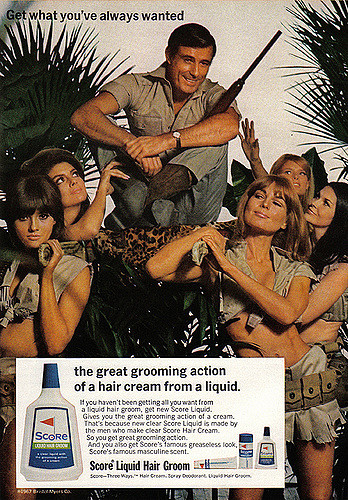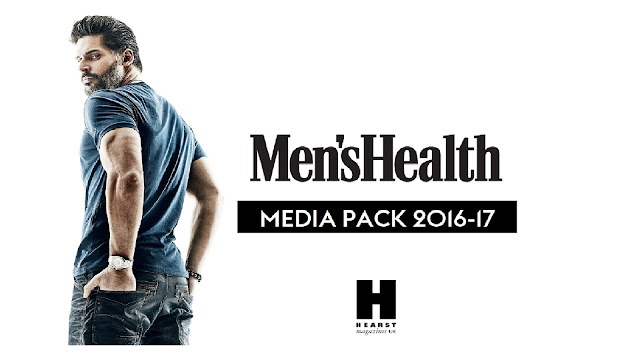MIGRAIN: Reception theory
Look back at the adverts you have been analysing over the last week of lessons and homework (RBK 50 Cent and one of your choice). What are the preferred, negotiated and oppositional readings for the adverts you have studied?
1) Write a paragraph for each advert analysing the dominant, negotiated and oppositional readings.
As previously discussed, this advertisement from Reebok denotes a photograph of 50 Cent alongside 2 of his quotes. The hegemonic reading of this advert would be that the creator intended to encourage consumer's to be themselves and be proud of their true origins. The negotiated reading would be that both the producer and consumer can agree that 50 Cent has done very well in his career. He has kept true to himself and his background in his rise to fame. The counter-hegemonic reading would be that the producer believes that one must have a hard upbringing and have a gangster past in order to become successful in the music industry. This can be thought from the way 50 Cent is dressed in the advertisement.
This Nike advert featuring Ronaldo can be interpreted by audiences in many different ways. The hegemonic reading would be that Nike's sportswear allow a person to excel when performing in sports activities. The negotiated reading would be that both the consumer and the creator can agree that Ronaldo is very good at football, whether or not he is wearing Nike sportswear. The counter-hegemonic reading would be that the creators are trying to depict the fact that Nike sportswear can suddenly make a person abnormally talented at sport even if they, previously, had no relationship with sports. The use of the unrealistic fire created while Ronaldo is running can be misinterpreted in this way.
1) Write a paragraph for each advert analysing the dominant, negotiated and oppositional readings.
As previously discussed, this advertisement from Reebok denotes a photograph of 50 Cent alongside 2 of his quotes. The hegemonic reading of this advert would be that the creator intended to encourage consumer's to be themselves and be proud of their true origins. The negotiated reading would be that both the producer and consumer can agree that 50 Cent has done very well in his career. He has kept true to himself and his background in his rise to fame. The counter-hegemonic reading would be that the producer believes that one must have a hard upbringing and have a gangster past in order to become successful in the music industry. This can be thought from the way 50 Cent is dressed in the advertisement.
This Nike advert featuring Ronaldo can be interpreted by audiences in many different ways. The hegemonic reading would be that Nike's sportswear allow a person to excel when performing in sports activities. The negotiated reading would be that both the consumer and the creator can agree that Ronaldo is very good at football, whether or not he is wearing Nike sportswear. The counter-hegemonic reading would be that the creators are trying to depict the fact that Nike sportswear can suddenly make a person abnormally talented at sport even if they, previously, had no relationship with sports. The use of the unrealistic fire created while Ronaldo is running can be misinterpreted in this way.
2) Do these adverts provide evidence for the idea that audiences are free to interpret messages in a variety of ways - including rejecting them? Answer this question as a mini-essay, exploring both sides of the argument.
I believe that these adverts do provide evidence for the reception theory- that audiences are free to interpret messages in a variety of ways. As discussed with the adverts above, there are many ways a media text can be interpreted. It all depends on perspective.
The advert above from Protein World is an example of this. When this advert was released, it received much criticism. The public stated that the advert was irresponsible as it essentially stated that any woman with a body which is not like that of the model is inferior and, consequently, she shouldn't wear a swim suit on the beach. The statement 'Are you beach body ready?' is straight away backed by the 'Weight loss collection'. This suggests that everyone has to lose weight in order to be ready for the beach.
To the consumer's this interpretation would be believed to be the hegemonic reading. However the creators stated a completely different hegemonic view and claimed that the public were reading their intentions completely wrong (anti-hegemonic reading).
The creators stated that "the term 'beach body' carried connotations of a toned, athletic physique similar to the image of the model in the ad but also had a broader meaning of feeling sufficiently comfortable and confident with one’s physical appearance to wear swimwear in a public environment."
Despite this, the advert received 400 complaints, a protest in London’s Hyde Park and a petition on Change.org that attracted more than 70,000 signatures. Consequently, the advert was eventually banned, proving that audience's can reject a media text.
Source: https://www.theguardian.com/media/2015/jul/01/protein-world-beach-body-ready-ads-asa
I believe that these adverts do provide evidence for the reception theory- that audiences are free to interpret messages in a variety of ways. As discussed with the adverts above, there are many ways a media text can be interpreted. It all depends on perspective.
The advert above from Protein World is an example of this. When this advert was released, it received much criticism. The public stated that the advert was irresponsible as it essentially stated that any woman with a body which is not like that of the model is inferior and, consequently, she shouldn't wear a swim suit on the beach. The statement 'Are you beach body ready?' is straight away backed by the 'Weight loss collection'. This suggests that everyone has to lose weight in order to be ready for the beach.
To the consumer's this interpretation would be believed to be the hegemonic reading. However the creators stated a completely different hegemonic view and claimed that the public were reading their intentions completely wrong (anti-hegemonic reading).
The creators stated that "the term 'beach body' carried connotations of a toned, athletic physique similar to the image of the model in the ad but also had a broader meaning of feeling sufficiently comfortable and confident with one’s physical appearance to wear swimwear in a public environment."
Despite this, the advert received 400 complaints, a protest in London’s Hyde Park and a petition on Change.org that attracted more than 70,000 signatures. Consequently, the advert was eventually banned, proving that audience's can reject a media text.
Source: https://www.theguardian.com/media/2015/jul/01/protein-world-beach-body-ready-ads-asa





Comments
Post a Comment